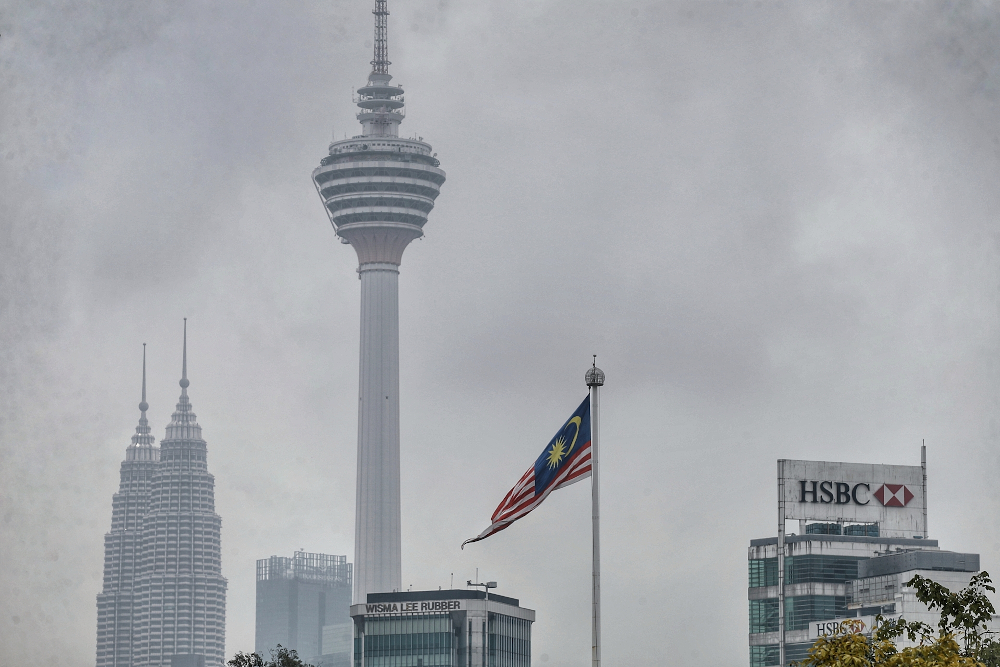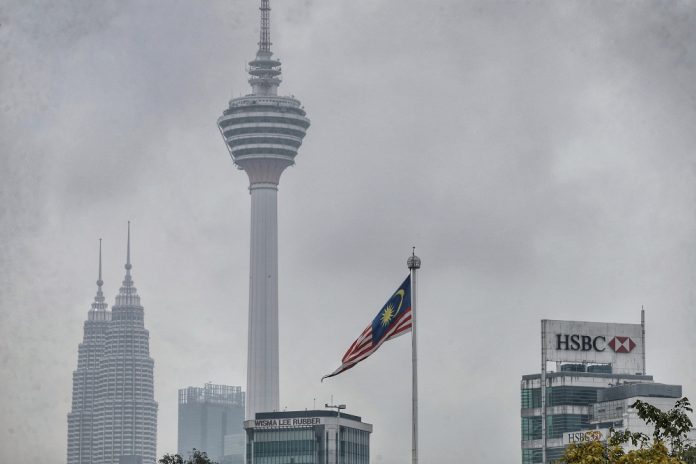
KUALA LUMPUR, Dec 4 — Fitch Ratings has downgraded Malaysia’s long-term foreign-currency issuer default rating (IDR) to ‘BBB+’ from ‘A-‘ with a stable outlook amid the impact of the Covid-19 crisis that has weakened not only Malaysia’s key credit metrics but also those of other countries.
Fitch acknowledged that the authorities responded swiftly to the crisis, with material relief measures for affected individuals and businesses.
“The government has secured passage of core legislation to implement relief measures, including the 2021 Budget,” it said in a statement today.
The rating agency said measures to contain the domestic spread of the coronavirus, combined with weak investment and low tourism receipts due to the pandemic, have reduced economic activity, as it has in many countries globally.
Fitch expects the Gross Domestic Product (GDP) to contract by 6.1 per cent in 2020 before rebounding by 6.7 per cent in 2021 due to base effects, a revival of infrastructure projects and an ongoing recovery of exports of manufactured goods and commodities.
“These forecasts remain subject to uncertainty and depend on the near-term evolution of the pandemic, as illustrated by an increase in the number of daily cases since early-October,” it said.
It noted that the government expects to vaccinate 30 per cent of the population next year, based on agreements so far with vaccine producers.
“We forecast growth of 4.6 per cent in 2022, on expectation that Malaysia’s diversified economy will deliver strong medium-term growth,” the agency said.
Fitch expects the fiscal deficit to remain higher than pre-pandemic levels, given a continuation of support measures and political pressure for higher spending.
Budget 2021 targets a deficit of 5.4 per cent of GDP, from an estimated 6 per cent in 2020, and an average deficit of 4.5 per cent of GDP from 2021 through 2023.
According to Fitch, the targets are achievable.
“We expect government revenue to remain low at 19.1 per cent of GDP in 2020 (‘BBB’ median: 31.4 per cent) and dependent on oil production, which the government expects to generate 22 per cent of total revenue this year, including a special dividend from national oil company Petroliam Nasional Bhd (Petronas).
“The low and concentrated revenue base—exacerbated by the removal of the GST in 2018 — has in recent years led the government to draw on dividends of government-linked companies, pending the introduction of new and more sustainable sources of revenue, which Fitch understands are being considered for the medium term,” it said.
Fitch expects general government debt to jump to 76 per cent of GDP in 2020 from 65.2 per cent of GDP in 2019. The debt figures used by Fitch include officially reported “committed government guarantees” on loans, which are serviced by the government budget, and 1Malaysia Development Bhd’s (1MDB) net debt, equivalent in September 2020 to 12.6 per cent and 1.3 per cent of GDP, respectively.
“On this basis, the debt burden is significantly higher than the medians of 59.2 per cent and 52.7 per cent for the ‘A’ and ‘BBB’ rating categories, respectively. Malaysia’s debt is close to 400 per cent of revenue, around three times the peer median.
“We expect the debt/GDP ratio to remain broadly stable after the pandemic recedes, given the likely fiscal deficit reduction, and low debt service costs, illustrated by an average 10-year yield of 2.7 per cent in November,” it said.
Fitch noted that the new government continues to implement some transparency-enhancing measures launched under the previous coalition, and corruption trials of former officials have continued.
However, in its view, the government’s thin two-seat parliamentary majority implies persistent uncertainty about future policies.
After a significant improvement in 2019, Malaysia’s World Bank governance score weakened slightly in 2020, to the 64th per centile, and is closer to the ‘BBB’ median of 58th per centile than the ‘A’ median of 76th per centile.
“Deterioration in governance and continued political uncertainty could dampen investor sentiment, constraining economic growth,” Fitch said.
Malaysia continues to run current account surpluses, which Fitch expects to narrow to 3.4 per cent of GDP in 2021 from 4.2 per cent in 2020, as the import compression due to the pandemic recedes and government spending on infrastructure development is revived.
The agency said the share of the government’s foreign currency-denominated debt is also low, at just two per cent of total debt.
In addition, the government is still relatively dependent on foreign financing, as foreign holdings of domestic debt are around 24 per cent of the total.
“This is down from a high of 34 per cent in 2016, and reflects a deep and developed domestic bond market,” it said.
It, however, said uncertainty about continued inclusion of Malaysia in a key bond index remains, and exclusion in 2021 could potentially generate capital outflows.
Fitch said Bank Negara Malaysia’s (BNM) policy response has supported the economic environment during the pandemic shock and included cuts in its policy rate this year by a cumulative 125 basis points (bp) to 1.75 per cent.
“Fitch judges that BNM has space for further easing and expects monetary policy to remain supportive of economic activity with another 25bp rate cut in 2021.
“We expect inflation to become positive again, at 1.5 per cent in 2021, as the pandemic shock recedes,” it said.
In its view, the banking sector maintains sufficient loss-absorption capital buffers, given the system’s common equity Tier 1 ratio of 14.6 per cent in October, and remains liquid with a liquidity coverage ratio of 153per cent.
“Moderate earnings pressure is likely to erode some of these buffers, although we expect the major banks to remain profitable in the near term,” Fitch said.
While a blanket six-month moratorium on debt repayment for retail and small and medium enterprise (SME) borrowers that began in April 2020 has provided relief to borrowers, Fitch said it may also mask asset-quality stress, with the system’s non-performing loan (NPL) ratio falling to a historic low of 1.4 per cent in the third quarter of 2020 from 1.6 per cent in the first quarter.
Fitch said an extension of more targeted relief to individuals and SMEs affected by the pandemic until at least mid-2021 should keep NPL ratios in check, but will continue to partially cloud visibility on asset quality. — Bernama


